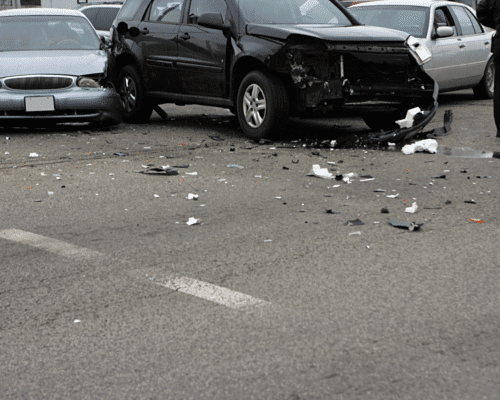Truck Accidents
Legal Options After a Multi-Car Accident Involving a Tractor-Trailer in Columbus, GA

When a massive commercial truck sets off a chain-reaction crash, the aftermath can include several injured drivers and passengers and serious legal questions. If you were involved in a multi-vehicle truck accident in Columbus GA, it’s important to understand your legal options and how fault is determined.
Top Mistakes to Avoid After a Tractor-Trailer Truck Accident in Georgia

Crashes involving semi-trucks are not like typical car accidents. There are several complicating factors that may come into play, like federal regulations, additional liable parties, and big trucking companies that know how to play hardball when it comes to protecting their bottom line. In these cases, a single mistake can lead to lost compensation or a claim that gets denied.
Truck Accident Liability: Who Is Responsible in Georgia?

When large semi-trucks collide with passenger cars, the outcome can be devastating. Victims often suffer serious injuries or fatalities.
Truck Accidents on Georgia Highways: Understanding the Risks

Georgia’s highways are vital for commerce across the southeastern United States. With major interstates like I-75, I-85, I-20, and I-16 cutting through the state, it’s no surprise that Georgia experiences a high volume of commercial truck traffic.
Wrongful Death and Trucking Accidents in Georgia: Legal Rights for Families

Losing a loved one is devastating under any circumstance, but when their death is caused by a preventable crash involving a commercial truck, the pain can be compounded by frustration, anger, and unanswered questions.
How Georgia’s Trucking Laws Affect Semi-Truck Accident Claims in Muscogee County
When a semi-truck is involved in a collision, the aftermath is almost always severe. Given the size and weight of these vehicles, even a seemingly minor crash can lead to devastating injuries or death. For victims in Muscogee County, including Columbus, GA, understanding how Georgia’s trucking laws influence semi-truck accident claims is critical. While complex, these laws play a major role in determining liability, compensation, and the overall success of a legal claim.
Who’s Liable After a Big Rig Crash in Columbus? Driver, Company, or Manufacturer?
Often, collisions involving big rigs result in devastating injuries, complex investigations, and difficult questions about who is responsible. In Columbus, Georgia, where I-185 and Route 27 see heavy truck traffic, determining liability in a truck crash is one of the most important parts of pursuing justice. If you’ve been hurt in one of these accidents, you need a knowledgeable big rig accident lawyer in Columbus, GA, to help you navigate this process and hold the right party accountable.
What to Do If You’re Injured in a Semi-Truck Crash with an Out-of-State Driver
Crashes involving semi-trucks are often severe, but when the truck driver is from another state, the aftermath can become even more complex. If you suffered a semi-truck crash injury in Columbus, GA, you may be wondering how an out-of-state driver affects your legal rights, insurance claims, and ability to recover compensation.
Why Tractor-Trailer Accidents Are So Common on Georgia’s I-185 and U.S. Route 27
Georgia’s highways in and around Columbus, particularly I-185 and U.S. Route 27, are vital trucking corridors. But with heavy commercial traffic comes a disturbing trend: a high volume of serious tractor-trailer accidents. At Butler Prather LLP, we’ve seen firsthand how devastating these crashes can be. Understanding why these collisions occur and what you can do in their aftermath is essential for protecting yourself and your loved ones.
When Are Big-Rig Truckers Supposed to Use Escape Ramps?
When a truck loses control due to brake failure or mechanical issues, the driver may struggle to stop or slow the vehicle down using conventional methods. Runaway truck ramps reduce the chances of collisions with other vehicles or obstacles by providing a safe and controlled environment for the vehicle to come to a stop.